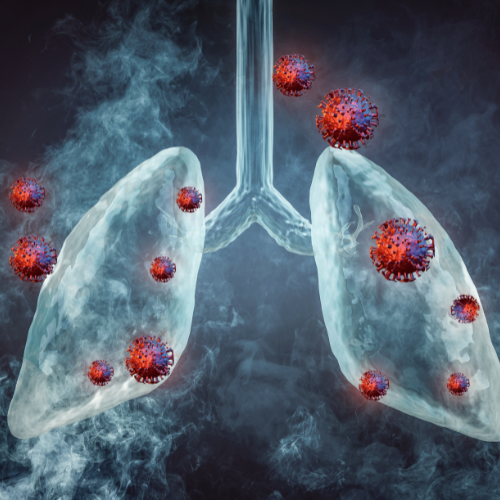The cost of lung cancer treatment in India varies significantly depending on several factors such as the type of treatment, stage of the cancer, the hospital's location, and the treating physician's expertise. Here, we explore the approximate costs associated with lung cancer treatment in major Indian cities and discuss how HealZone Medical Tourism can assist in finding the best healthcare options.
1.Initial Diagnosis and Tests:
To diagnose lung cancer, doctors might order tests like chest X-rays, CT scans, PET scans, and biopsies. These initial
tests can cost between ₹20,000 and ₹50,000.
2. Surgery:
If surgery is needed to remove the tumor, it can cost between ₹2 lakh and ₹5 lakh (₹200,000 to ₹500,000), depending on the complexity of the surgery and the hospital.
3. Radiation Therapy:
This treatment uses high-energy rays to kill cancer cells. The cost for a full course of radiation therapy can range from ₹1 lakh to ₹5 lakh (₹100,000 to ₹500,000).
4. Chemotherapy:
Chemotherapy involves using drugs to kill cancer cells. Each cycle of chemotherapy can cost between ₹20,000 and ₹1 lakh (₹20,000 to ₹100,000), and patients often
need multiple cycles.
5. Targeted Therapy:
These drugs specifically target cancer cells and are usually more expensive. Each session can cost between ₹50,000 and ₹3 lakh (₹50,000 to ₹300,000).
6. Immunotherapy:
This is a newer type of treatment that helps the immune system fight cancer. It can be quite expensive, costing from ₹2 lakh to ₹5 lakh (₹200,000 to ₹500,000) per
dose, with multiple doses often required.
7. Hospital Stay and Other Expenses:
Costs for hospital stays, medications, and supportive care can add another ₹1 lakh to ₹3 lakh (₹100,000 to ₹300,000) to the total treatment cost.
Total Estimated Cost:
When you add everything together, the total cost of lung cancer treatment in India can range from approximately ₹5 lakh to ₹20 lakh (₹500,000 to ₹2,000,000) or more,
depending on the treatment plan and the healthcare facility.
HealZone Medical Tourism is recognized as a premier provider of healthcare services, with over a decade of expertise in delivering top-quality treatments at cost-effective rates. We assist our international clients in selecting the ideal treatment destinations that align with their budget and medical requirements.
We ensure complete transparency in all our interactions and services. We help you find the best treatment within your budget Our team of cancer specialists is highly trained. We use the latest technology for top-notch care High success rates with procedures meeting international standards Quality Lung Cancer treatment in India at reasonable prices

Lung cancer is also called lung carcinoma. Lung cancer is one of the most common cancers in the world. Lung cancer is cancer that starts in the trachea when cancer begins in the lung cells and is called primary lung cancer. It can also spread (metastasis) to other parts of the body.
1. Non-Small Cell Lung Cancer
2. Small Cell Lung Cancer
3. Lung Carcinoid Tumor
Lung cancer, a major health concern worldwide, has specific symptoms, risk factors, and treatment processes. Understanding these can help in early detection and effective treatment. Here’s an overview
covering lung cancer symptoms, risk factors, surgery preparation, the surgical procedure, post-operative care, success rates, and frequently asked questions.
Symptoms of lung cancer typically appear only when the disease is advanced:
- Persistent cough that worsens over time
- Changes in a cough that you’ve had for a long time
- Blood in sputum (hemoptysis)
- Shortness of breath
- Chest pain
- Hoarseness
- Weight loss and loss of appetite
-Fatigue
- Recurring infections such as bronchitis and pneumonia
- Smoking: The leading cause of lung cancer, including exposure to secondhand smoke.
- Exposure to radon gas: Produced by the natural decay of uranium in soil and rocks.
- Exposure to asbestos and other carcinogens: Such as arsenic, chromium, and nickel.
- Family history of lung cancer: Risk is higher if your parent, sibling, or child has had lung cancer.
- Previous radiation therapy to the chest: For treatment of other cancers.
Preparation for lung cancer surgery involves several steps:
- Medical evaluation: Assess overall health and identify any conditions that might complicate surgery.
- Tests: Including blood tests, pulmonary function tests, and possibly a cardiopulmonary exercise test to assess lung function.
- Smoking cessation: It's critical to stop smoking as soon as possible before the surgery.
-Medications review: Discuss with your doctor about medications you're taking, as some may need to be adjusted or stopped.
The type of surgery for lung cancer depends on the size, location, and stage of the tumor:
- Wedge resection: Removing a small section of lung that includes the tumor.
- Segmental resection: Removing a larger portion of lung, but not an entire lobe.
- Lobectomy: The most common surgery, involving removal of an entire lobe of one lung.
- Pneumonectomy: Removal of an entire lung.
Post-surgical care focuses on recovery and monitoring for complications:
- Pain management: Managing pain through medications.
- Physical therapy: To aid breathing and help return to normal activities.
- Regular follow-ups: To monitor healing and detect any recurrence of cancer.
The success rate for lung cancer surgery depends largely on the stage of the cancer at diagnosis. Early-stage lung cancer has a higher survival rate, often exceeding 70% at five years post-diagnosis, whereas advanced lung cancer has significantly lower rates.
We help patients from across the globe in taking healthcare decisions and continue helping patients at affordable budget.
We continuously strive to help our patients in the most effective way possible with full transparency and integrity.
To be the most well known and trusted web-based personalized healthcare advisor across the globe.

